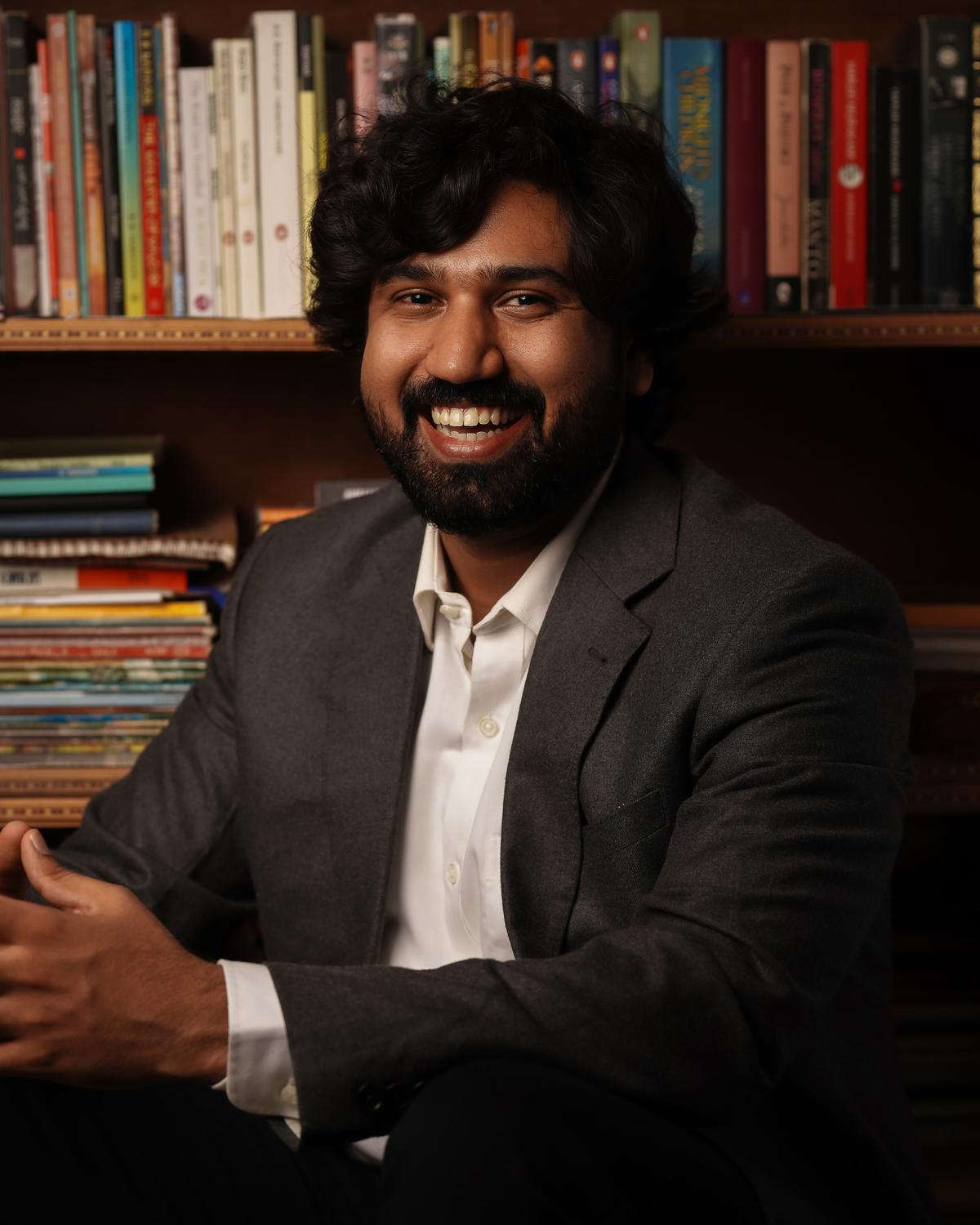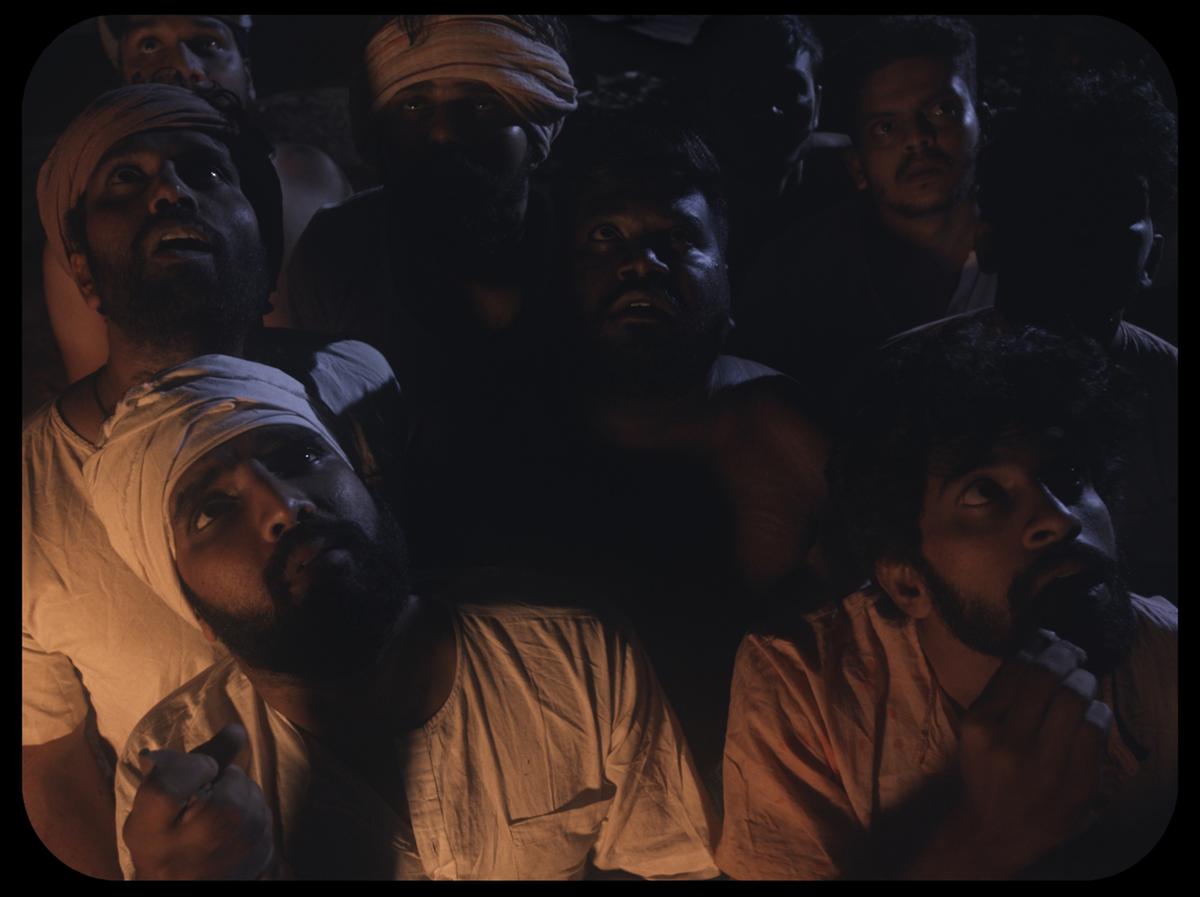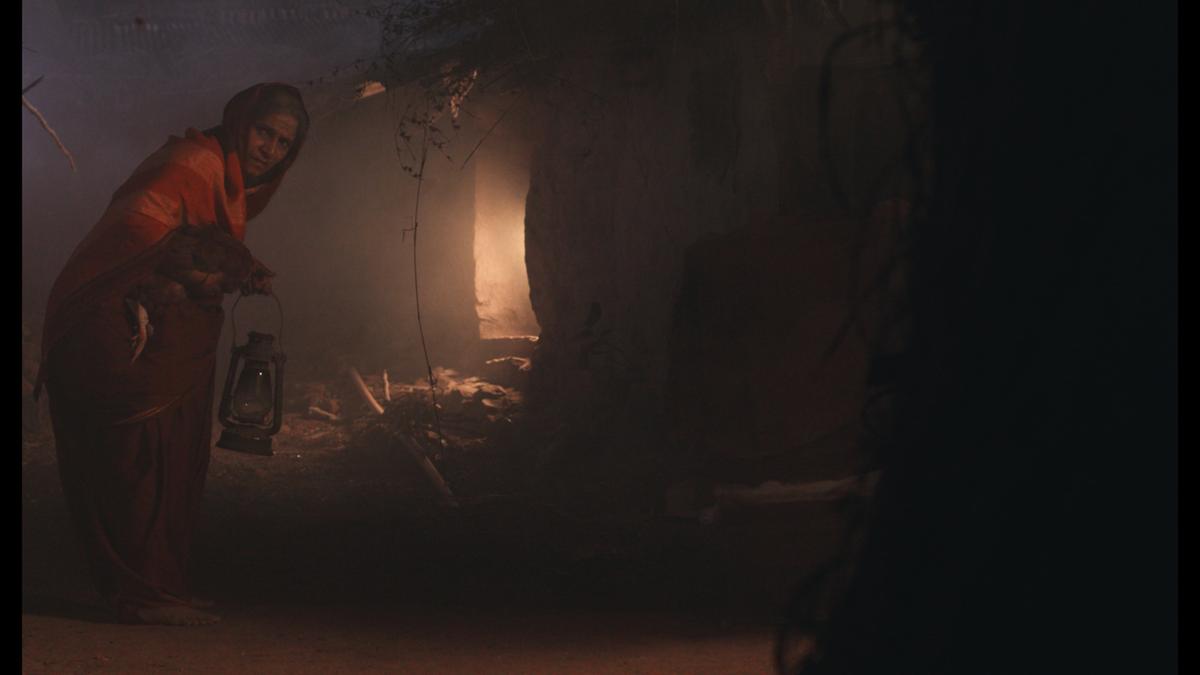Chidananda S Naik’s Kannada short film, Sunflowers Were the First Ones to Know (2023), has been chosen to participate in the La Cinef section of the Cannes Film Festival.
The section showcases and promotes films from various film schools worldwide, fostering emerging talent. The jury will present the La Cinef awards during a ceremony on May 23 at the Bunuel Theatre.
The 15-minute film, which is a part of Chidananda’s year-end exercise at the Film and Television Institute of India (FTII), includes Suraj Thakur (cinematography), Manoj V (editing), and Abhishek Kadam (sound) as crew. The film revolves around an elderly woman who disrupts the village’s harmony by stealing their prized rooster, plunging the community into perpetual darkness. This act sets the villagers on a desperate quest to retrieve the missing bird and restore the sun’s light. Shot entirely at night, the film evokes a sense of mystery and intrigue.

Chidananda S Naik
| Photo Credit:
Special Arrangement
It was not a single defining moment that led Chidananda to filmmaking. Instead, it was a gradual process shaped by a series of events. The first spark came from watching Akira Kurosawa’s Dreams, a film that completely blew him away when he was in seventh standard. Later, in the beginning of the previous decade, a wave of new Kannada cinema swept the scene. Films like Lucia by Pawan Kumar and Rakshit Shetty’s projects and others like Rangitaranga were emerging, showcasing a whole new generation of filmmakers.
Being from Karnataka, Chidananda was exposed to this exciting movement. This also led him to discover masters such as Girish Kasaravalli and Girish Karnad. This and discussions about world cinema opened his eyes to what he calls “a whole new universe.”
But his feet had not stepped into that universe yet. He went on to do medicine, which, strangely, led him to films.
“Working in medicine, I witnessed countless patients and gained access to their most intimate spaces. It was a place of raw honesty, where people wouldn’t lie. Witnessing birth and death first-hand made me contemplate the profound aspects of life,” says Chidananda over the phone.
While a doctor’s life offers security and a wealth of experiences, it also lays bare the full spectrum of human emotions – a constant dance between joy and sorrow. He became deeply involved in these moments, forced to confront the complexities of being human. Those intimate spaces, filled with raw honesty, pushed him towards self-discovery and a yearning for creative expression.
This is how the doctor became the filmmaker. “It was a slow awakening for me,” says Chidananda, laughing.
Sunflowers Were the First Ones to Know is derived from a Kannada folktale, which he has been carrying in his heart since childhood. Surprisingly, despite its popularity within Karnataka, he discovered that most people outside the state were unfamiliar with the tale. “My dream has been to transform the myths and folktales of India into cinematic experiences, and with such a wealth of stories waiting to be told, this short film feels like the perfect place to start.”

Still from ‘Sunflowers Were the First Ones to Know’
| Photo Credit:
Special Arrangement
“The story’s core theme revolves around fate, a question that has resonated across cultures since the myth of Sisyphus. Can we truly defy our predetermined fate? My issue is that while we readily discuss Greek philosophies and stories from other cultures, we often overlook the rich tapestry of similar themes and philosophies within our Indian traditions. These are stories that deserve serious exploration,” he adds.
Although a 15-minute film, Sunflowers Were the First Ones to Know threw up a few challenges. “We just got four days to shoot. Shooting entirely at night with limited resources was tough, further amplified by the difficult geography of the location. Public transportation wasn’t accessible, so everyone had to carry equipment throughout the night with a minimal crew. Those four days were gruelling, with everyone exhausted and tired, yet driven by an unwavering passion,” says Chidananda.
The toil, however, has paid dividends. Chidananda will go to Cannes on May 12 to see his film but, more importantly, to “celebrate cinema.”
“This selection at Cannes is a chance for exposure and interaction with other international filmmakers. It shows that this path is open to others in Karnataka as well. I hope to see more Kannada films reaching Cannes in the future,” he says.
“This recognition motivates me to keep making films, reach a wider audience, and take them to a global level. That’s the ultimate goal. Seeing artists like Quentin Tarantino, Francis Ford Coppola, and Bong Joon-ho break into Cannes with their earlier films inspires me. They persevered and took their work to the international stage. I would love to see our films reach that level, too.”
#Kannada #short #film #Sunflowers #screened #Cannes


